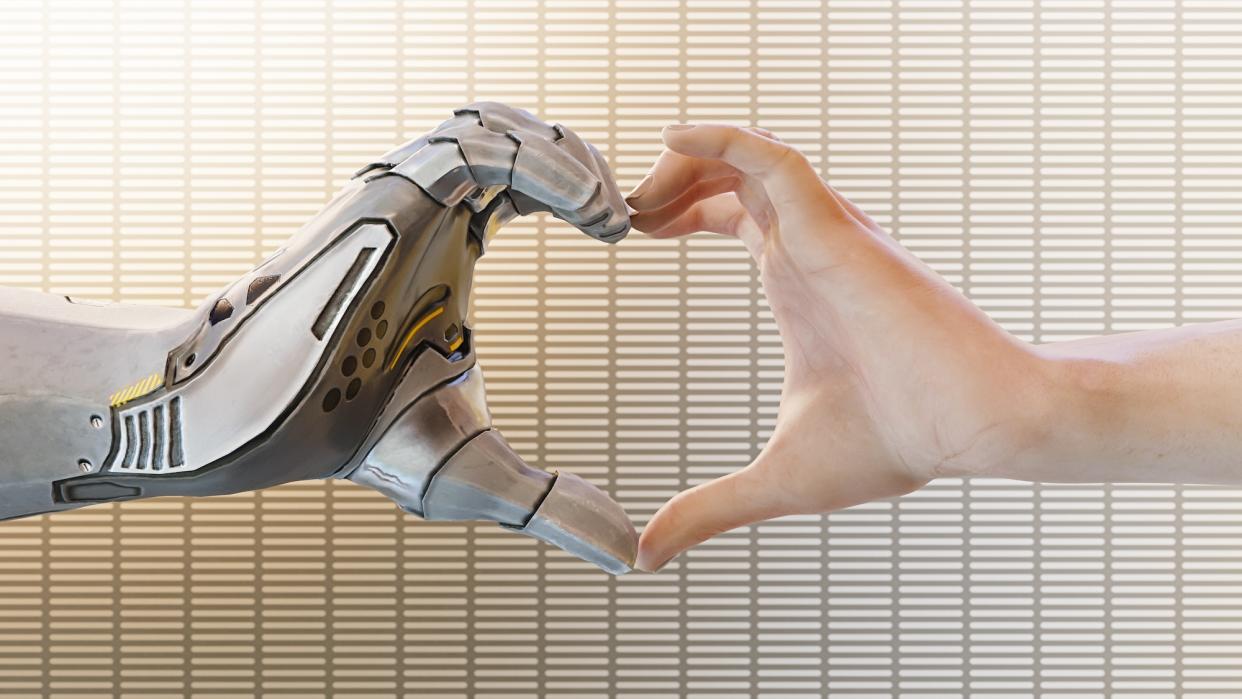The pros and cons of AI companions

You may not consider artificial intelligence assistants like Siri or Alexa as potential close friends, but the latest wave of generative AI tech indicates that the possibility of AI companions is less farfetched than before. Apps like Replika are billed as the "AI companion who cares" and offer a more empathetic and interactive experience. Other companies are integrating their tech into existing assistants, indicating a shift toward friendlier chatbots. While this may be the beginning of an era of AI companionship, some critics are weary about the digitization of human interaction, saying that it could create problems when it comes to contact between real people. Others are more optimistic about the potential for AI to be used in this capacity.
Pro: They're more personal than older AI assistants
The newest AI bots move beyond simple speech or text recognition to create a more interactive experience, as many have the ability to recall previous conversations and built-in personalities. In the next few months, "we will all be rethinking our relationship with computers in a profound way" through "the modality of computer conversation," Mark Wilson predicted in Fast Company. As old-school assistants are replaced with more personal AI companions, computing, "once simply about completing tasks, will become more personal, nuanced and, above all else, familiar than ever before," Wilson noted.
Con: They only mimic human interaction
While developing an actual relationship with AI companions might be appealing, some experts warn that the technology only mimics what real human interaction is like. MIT professor of sociology Sherry Turkle argued that this "pretend empathy ... takes advantage of the deep psychology of being human," per CNET. She could see why people might turn to digital companionship. Still, in the end, chatbots, "no matter how clever, can only disorient and disappoint," Turkle said in MIT's 2020 Technology Review.
Pro: They make companionship accessible for lonely or marginalized people
For some people, AI bots offer an opportunity for interaction they may have never had. Some of us who are blessed with close friends and families "may look down on tools like this, experiencing what they offer as a cloying simulacrum of the human experience," Casey Newton wrote on the substack Platformer. "But I imagine it might feel different for those who are lonely, isolated or on the margins." For example, Psychology Today pointed out that for "the elderly in retirement homes or those isolated due to chronic illness, an AI chatbot can offer the gift of constant, caring companionship."
Con: They can perpetuate problematic beliefs about relationships
As AI becomes more interactive, it is not surprising that apps now allow you to customize companions capable of building a romantic rapport. Eva AI, an AI girlfriend app, enables you to create your perfect digital partner. But having the capability to develop someone that you control and meets your every whim is "really frightening," said Tara Hunter, acting CEO for domestic violence advocacy group Full Stop Australia, told The Guardian. "Given what we know already that the drivers of gender-based violence are those ingrained cultural beliefs that men can control women, that is really problematic," she added.
Pro: They can help you practice navigating real relationships
Despite all the naysayers, several users have reported that AI chatbots help them practice intimate or romantic situations in real life. When the teams behind the Replika friend bot and its flirtatious counterpart, Blush, started listening to user's stories, they realized that there was "actually a lot of value for people in being able to practice more romantic speech and having these more intimate moments,” Blush’s chief product officer Rita Popova told TechCrunch.
Con: They could negatively impact the birth rate
The rise of interactive AI girlfriends is "enabling the silent epidemic of loneliness in an entire generation of young men," Liberty Vittert opined for The Hill. She argues that if young men choose AI girlfriends over real-life relationships, they likely won't marry or have children with real women. Eventually, this could lead to a smaller workforce as the population shrinks. If the trend continues to enable "a generation of lonely men to stay lonely and childless," it could have "devastating effects on the U.S. economy in less than a decade," Vittert predicted.

